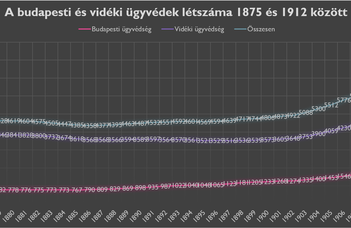Noblesse oblige

28-29 April 2022 was held Noblesse oblige. Noble and Noble Attitudes from the Middle Ages to the 20th Century Conference
The conference was organised by the Heves County Regional Group of the Hungarian Historical Society, the Research Group on the History of Parliamentarism of the Eszterházy Károly Catholic University and the Research Group on the Political Culture of the Hungarian Order (1526-1848) of the Hungarian National Archives.
Our research group was represented by Viktor Papp and Viktor Tátrai.
In his lecture Viktor Papp dealt with the local value of legal education in society and the transformation of the legal profession. The role of lawyers of the reformed nobility and honorary status in the middle class and in the 'legal nation' is discussed in the theses of István Hajnal, István Bibó and Elemér Mályusz, but these concepts do not provide an exhaustive answer to the question of why and in what form the legal profession was transformed in the second half of the 19th century. Indeed, during the dualist period, the practice of law became accessible to Jews, and the significant increase in the number of law students was closely linked to the increase in the number of lawyers, leading to the numerus clausus (closed number) reform proposals at the turn of the century..
Viktor Tátrai Orders and/or classes? A debate on the classification of social groups in the dualist era, he sought to answer two questions by examining social statistics, political science, legal and political literature and publicity written in the second half of the 19th century. First, through an analysis of collective social representations, he sought to show how people perceived social differences after the 1848 revolution. In what categories did they think of their own society, what groups did they identify within it, and what were the influences of the factors that structured society on their own perceptions? Another question related to the study of the formation of social groups, to which the lecture sought answers, was how the hierarchical conception of society of the pre-1848 historical-legal order influenced the hierarchy of occupations during the dualist period, i.e. what qualitative images were attached to occupations, how were historical-legal and occupational thinking related to each other?
„Minthogy a’ Magyar nemesek a’ hadakozásra, az ő jobbágyaik pedig a’ földmívelésre adták magokat, tsak hamar arra fordították régi királyaink elméjeket, hogy az embereknek eggy középső rendit állítsanak elő, a’ melly a’ mesterségeket és kereskedést gyakorolja.”


